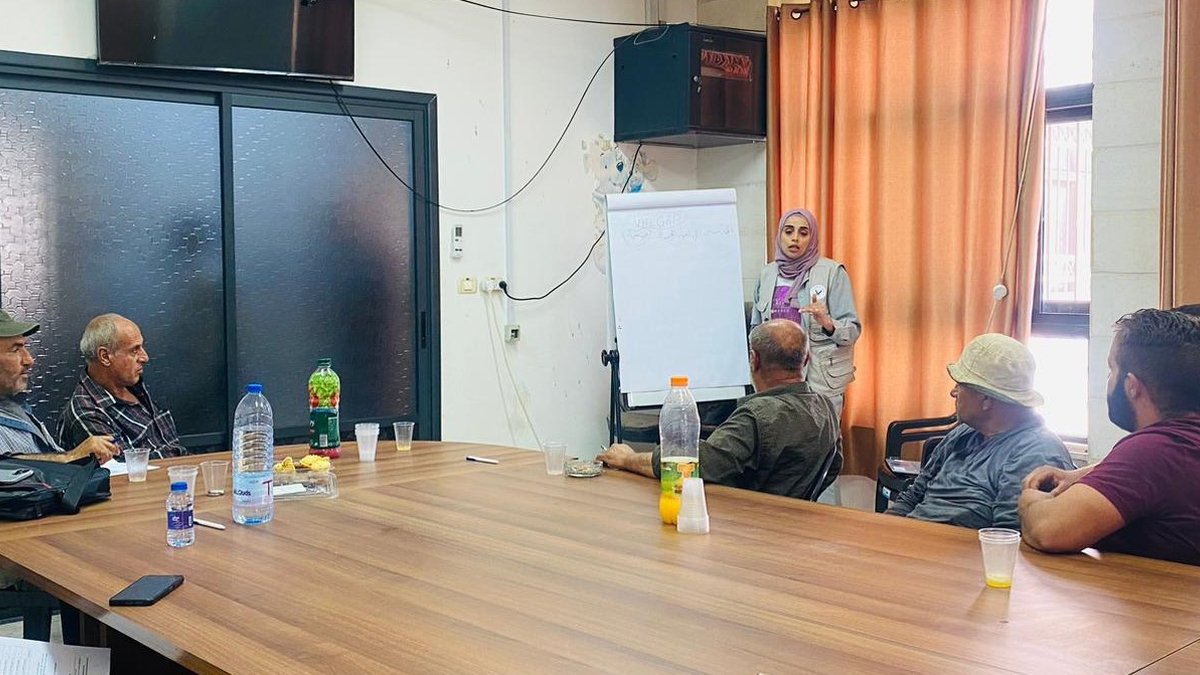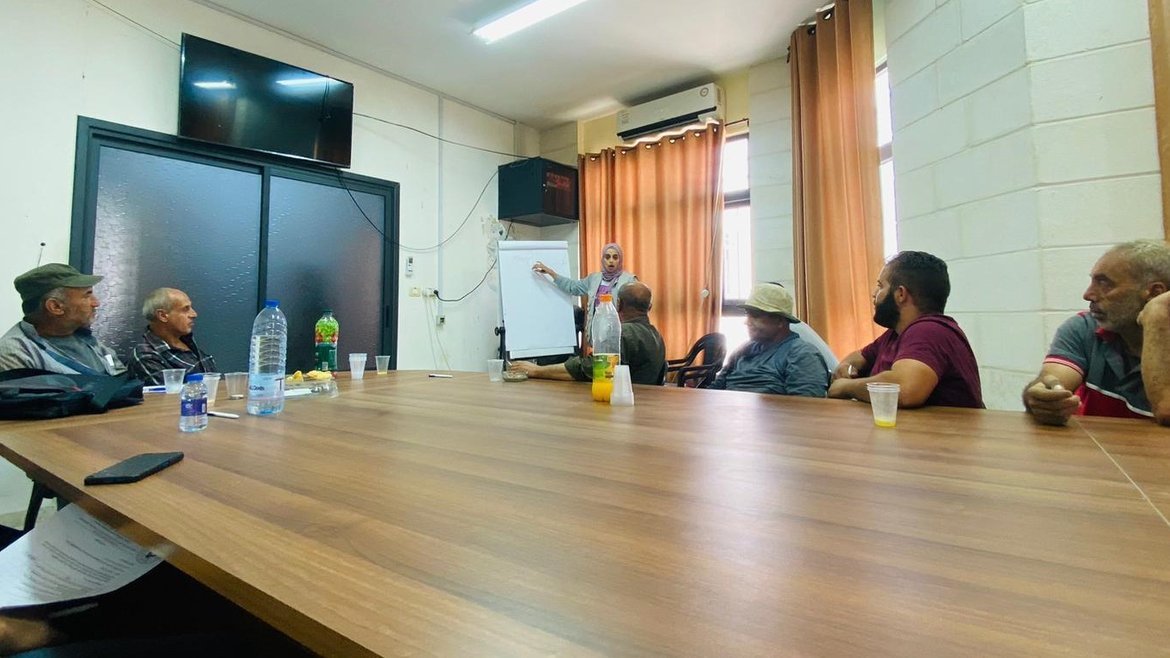
As part of its efforts to promote sustainable farming and enhance the adoption of Palestinian Good Agricultural Practices (Pal-GAP), An-Najah National University—through its Nablus-based team—organized a specialized training workshop for farmers in the Qabatiya area of Jenin. The session was held in close coordination with the South Jenin Directorate of Agriculture, aiming to build local capacity in the application of Pal-GAP standards.

The workshop provided participants with in-depth explanations of the requirements and certification process associated with Pal-GAP, which is designed to improve the quality and safety of agricultural products while enhancing their competitiveness in local and international markets. A number of farmers benefiting from the “Safe Agriculture” project attended the training, where emphasis was placed on the importance of adhering to sustainable farming practices that ensure healthy, safe crops and responsible resource management.
Representatives from An-Najah University and the South Jenin Directorate highlighted the significance of such workshops in empowering farmers to implement best practices. They noted that Pal-GAP certification not only raises production standards and promotes environmental sustainability but also opens new market opportunities for Palestinian agricultural products.

This training is part of a broader effort under the project “Building Community Resilience and Improving Livelihoods and Food Security through Good Agricultural Practices,” funded by the French Development Agency (AFD) and Islamic Relief France (SIF). The project is led by An-Najah National University (through its Faculty of Agriculture and Veterinary Medicine and the Energy, Water, and Food Security Research Center), in partnership with the Palestinian Economic and Social Development Center (ESDC), and in coordination with the Palestinian Standards Institution (PSI) and the Ministry of Agriculture (MoA).
Through continuous education and the introduction of modern agricultural techniques, this initiative contributes to the development of a more resilient, competitive, and sustainable agricultural sector in Palestine.
عدد القراءات: 189





